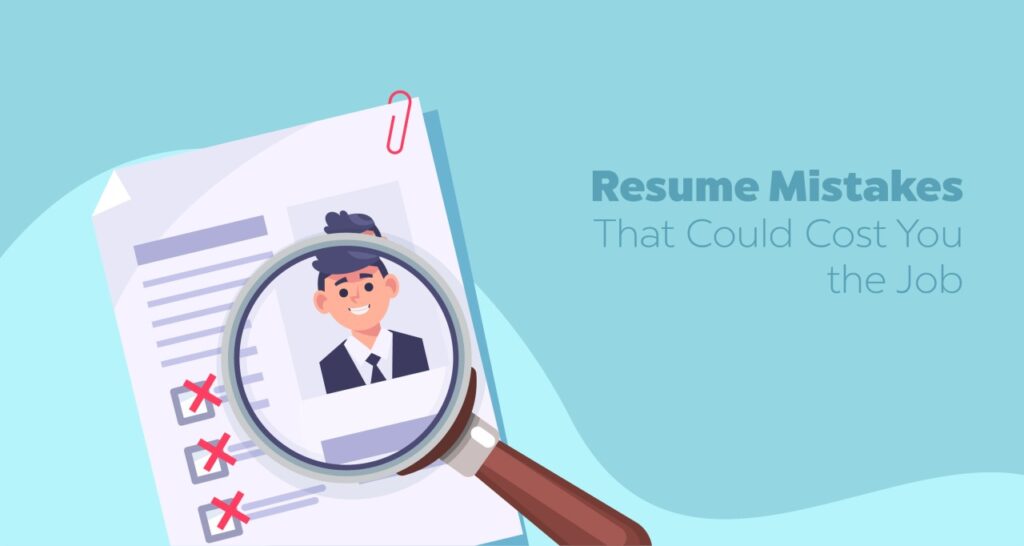Your resume is often the first impression you make on a potential employer. Yet, common resume mistakes can hinder your chances of landing that dream job. Let’s dissect the pitfalls and explore the resume mistakes you need to stop making today to enhance your professional appeal.
1. Generic Resumes: One Size Doesn’t Fit All
- Tailoring your resume to each job application
- Highlighting relevant skills and experiences
- Crafting a compelling career objective for each role
2. Overwhelming Length: Short and Sweet Wins
- Keeping your resume concise and relevant
- Prioritizing impactful information
- Staying within the recommended one to two pages
3. Lack of Keywords: Getting Past Applicant Tracking Systems (ATS)
- Identifying and incorporating industry-specific keywords
- Matching the language used in the job description
- Maximizing visibility with ATS-friendly resumes
4. Vague Language: Be Specific, Be Impactful
- Using action verbs to describe accomplishments
- Quantifying achievements with numbers and percentages
- Steering clear of generic phrases and clichés
5. Ignoring the Power of Design: Visual Appeal Matters
- Opting for a clean and professional design
- Choosing a readable font and consistent formatting
- Incorporating subtle design elements to stand out
6. Neglecting a Strong Summary or Objective
- Crafting a compelling career summary or objective
- Tailoring it to showcase your unique value proposition
- Setting the tone for the rest of your resume
7. Skipping Contact Information: Make It Easy to Connect
- Including updated and professional contact details
- Providing links to your LinkedIn profile or portfolio
- Ensuring easy accessibility for potential employers
8. Listing Job Duties Instead of Achievements
- Focusing on quantifiable achievements in each role
- Showcasing the impact of your contributions
- Providing a clear picture of your value to potential employers
9. Including Irrelevant Information: Quality Over Quantity
- Streamlining your resume by omitting irrelevant details
- Prioritizing recent and pertinent experiences
- Keeping the focus on skills and accomplishments relevant to the job
10. Neglecting Proofreading: Errors Can Be Costly
- Reviewing your resume for grammatical and spelling errors
- Seeking feedback from peers or mentors
- Presenting a polished and professional document
Your resume is a snapshot of your professional journey, and avoiding these common mistakes can significantly enhance your chances of standing out in a competitive job market. Take the time to tailor your resume, emphasize your achievements, and present a document that reflects your unique value to potential employers.
Frequently Asked Questions (FAQs)
Q: How important is it to tailor my resume for each job application?
A: Extremely important. Tailoring your resume showcases your alignment with the specific job requirements and increases your chances of getting noticed.
Q: Should I include personal hobbies and interests on my resume?
A: It depends. If they are relevant to the job or demonstrate valuable skills, feel free to include them. Otherwise, focus on professional achievements.
Q: How can I optimize my resume for ATS?
A: Use industry-specific keywords, match the language in the job description, and avoid complex formatting that may confuse ATS systems.
Q: Is it necessary to include a career summary or objective on my resume?
A: Yes, a well-crafted summary or objective can provide employers with a quick overview of your career goals and what you bring to the table.
Q: How often should I update my resume?
A: Regularly update your resume, especially after significant achievements, new skills, or job changes. This ensures it’s always ready for potential opportunities.



